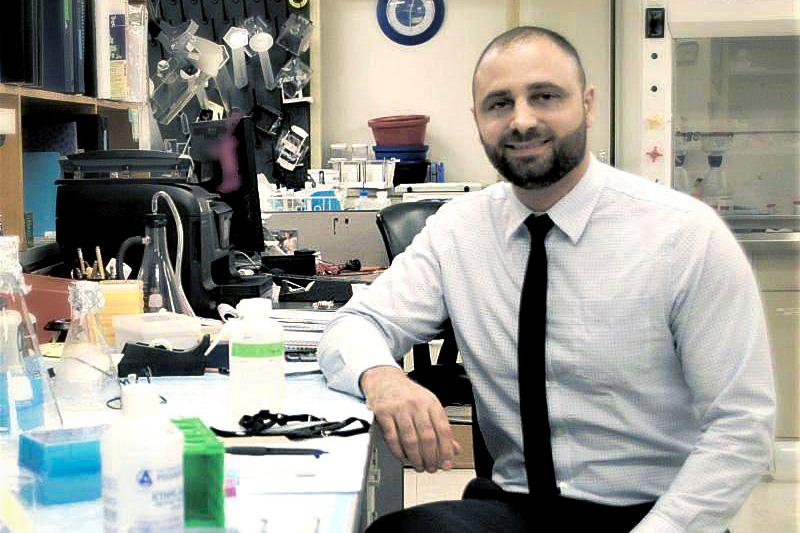Study seeks agent that can overcome drug resistance
Nakhle Saba, MD, an assistant professor of clinical medicine in the Tulane University School of Medicine, recently received a one-year, $30,000 Ladies Leukemia League grant to study the role of a protein — MALT1 — in B-cell acute lymphoblastic leukemia (B-ALL) and whether targeting this protein can kill the cancer cells.
B-ALL is the most common leukemia in children. It also has a higher incidence among 60- to 70-year-olds. While it is often curable in kids, older patients can develop a resistance to the drugs used to fight the disease, including classic chemotherapy and targeted therapy.
In most cases, these drugs help achieve remission, but they are not curative. Some patients remain in remission for years, but others, especially those with high-risk disease, can develop a mutation that makes them resistant to the drugs, leading to relapse.
“We believe that MALT1 could be a new target along this pathway to resistance,” said Saba.
This project builds on prior work in which Saba and colleagues at the National Institutes of Health and Weill Cornell Medical College looked at the role of MALT1 in chronic lymphocytic leukemia (CLL), the most common leukemia in adults in the United States.
“We found that it does play a critical role in the survival of CLL cells and that targeting this protein in the lab can overcome drug resistance to novel targeted therapy,” said Saba.
The team “targeted” MALT1 with a drug called MI2 — a small molecule inhibitor discovered by Weill Cornell's Ari Melnick and colleagues — that can go into the cell and bind to MALT1, inhibiting its activity.
“When we tried this in CLL to overcome ibrutinib resistance, we looked at cells harboring these mutations, and they were dying,” said Saba.
In this new project, he hopes to reproduce these results in B-ALL.
“Our preliminary data show that MALT1 is active in this disease. Ultimately we hope to come up with a new agent that can overcome drug resistance and prolong long-term disease control.”


